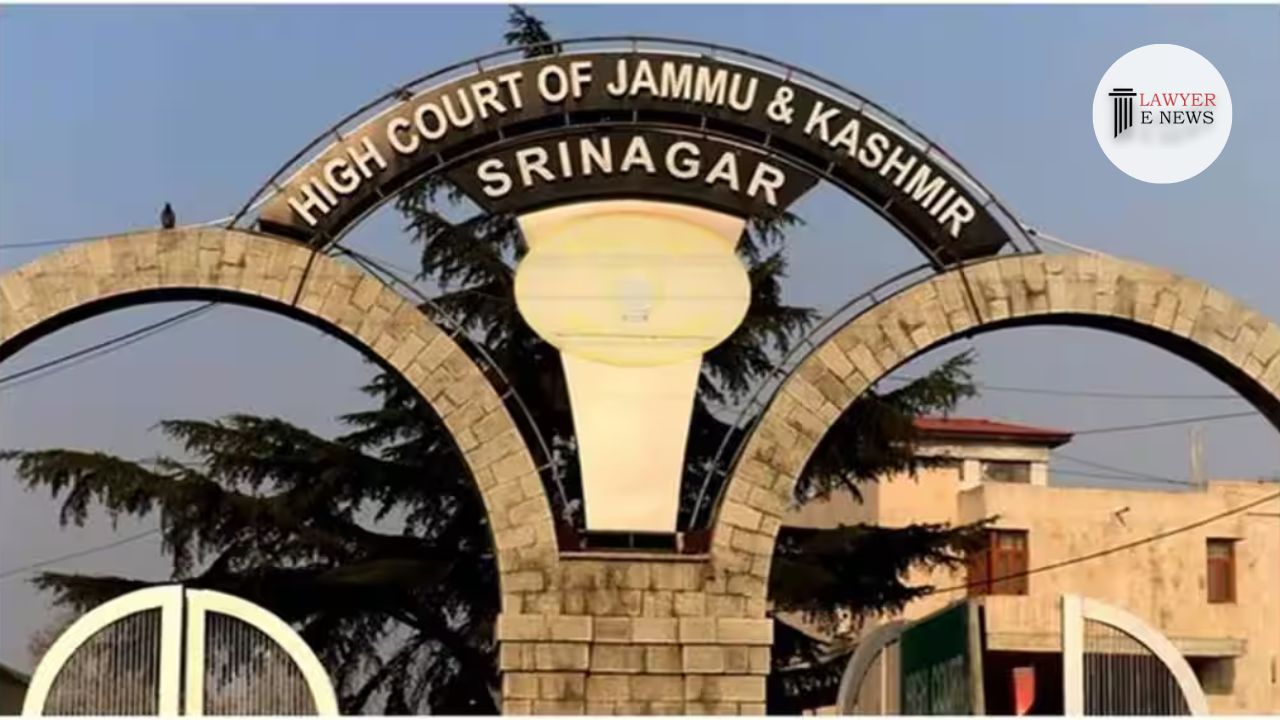-
by sayum
14 February 2026 2:22 PM



Court Orders Release of Rs. 68.50 Lakhs Plus Interest, Citing Promissory Estoppel and Contractual Obligations
The Jammu & Kashmir High Court has directed the Union Territory of Jammu and Kashmir to release Rs. 68.50 lakhs to petitioner Karamat Ullah Malik for the completed construction of a road from Chowkian to Sarotha. The court, presided over by Justice Wasim Sadiq Nargal, emphasized the doctrine of promissory estoppel and Section 70 of the Indian Contract Act, 1872, in affirming the petitioner’s entitlement to the payment despite the respondents’ objections regarding technical sanctions and tendering processes.
Promissory Estoppel and Government Liability: Justice Wasim Sadiq Nargal underscored the principle of promissory estoppel, asserting, “The government is bound by its promises and cannot deny liability after admitting it in internal communications.” The court held that the respondents’ acknowledgment of the petitioner’s claim, through various correspondences and official communications, constituted a binding promise that the government must honor.
Credibility of Administrative Approvals and Completion Certification: The court noted that the petitioner received authorization and administrative approval from the relevant authorities for the road construction. A completion certificate was issued, certifying the completion of the road within the stipulated cost. Despite this, the respondents withheld payment, citing the absence of technical sanctions and non-compliance with tendering procedures.
Rejection of Respondents’ Objections: Justice Nargal dismissed the respondents’ objections, stating, “The work was authorized and certified by relevant authorities, and the objections regarding technical sanctions and tendering processes are unjustified.” The court highlighted that the petitioner’s work was not done gratuitously and was fully documented, satisfying the requirements of Section 70 of the Indian Contract Act.
The judgment delved into the legal framework governing government contracts and the applicability of the writ jurisdiction in contractual disputes. The court referenced several precedents, including the Supreme Court’s ruling in Rickmers Verwaltung GMBH v. Indian Oil Corporation Ltd., to assert that a binding contract can be inferred from the correspondence between the parties.
Justice Nargal emphasized the importance of government accountability, stating, “The doctrine of promissory estoppel is applicable against the government in the exercise of its governmental, public, or executive functions, ensuring that promises made are promises kept.”
The High Court’s decision reinforces the legal obligation of the government to honor its commitments and provides a significant precedent for contractors facing similar issues. By mandating the release of funds within six weeks and stipulating an interest penalty for delays, the judgment underscores the judiciary’s role in ensuring fairness and accountability in public contracts.
Date of Decision: May 28, 2024
Karamat Ullah Malik vs. Union Territory of Jammu and Kashmir & Others
